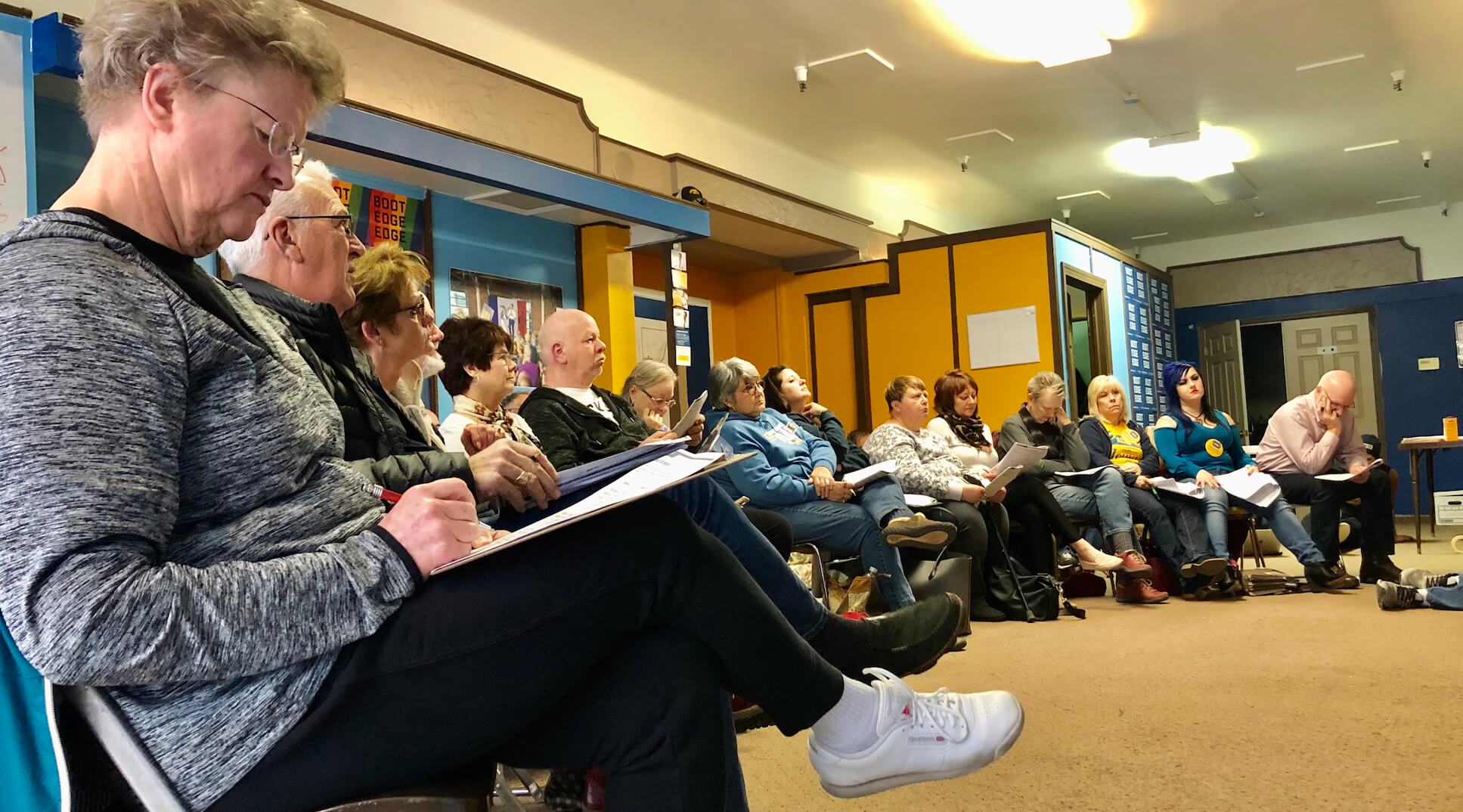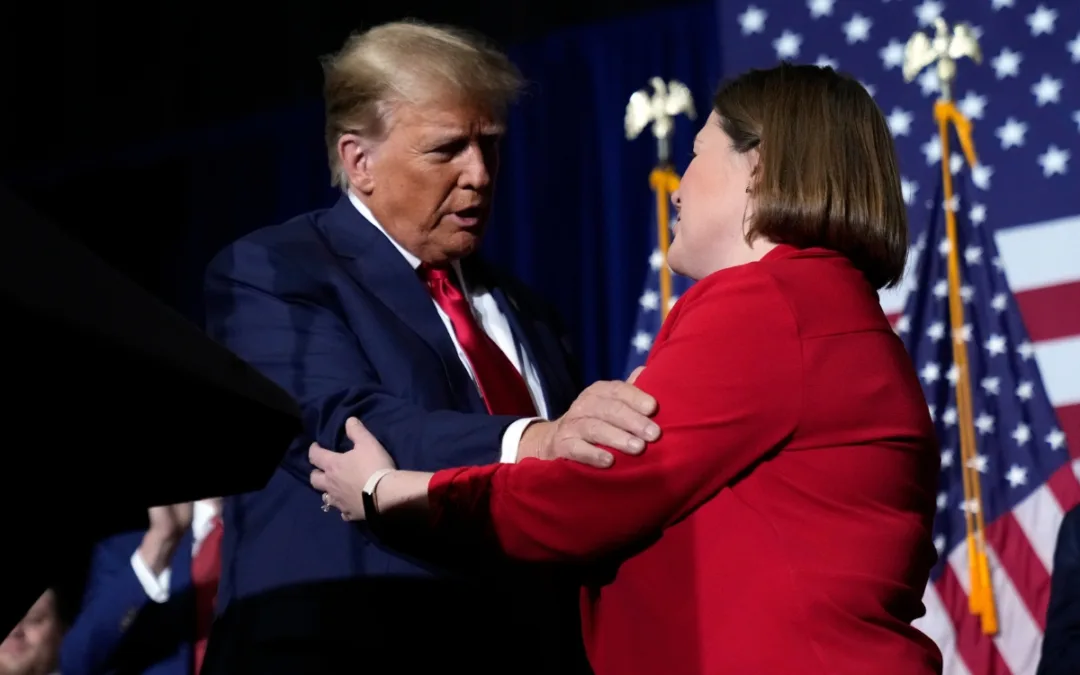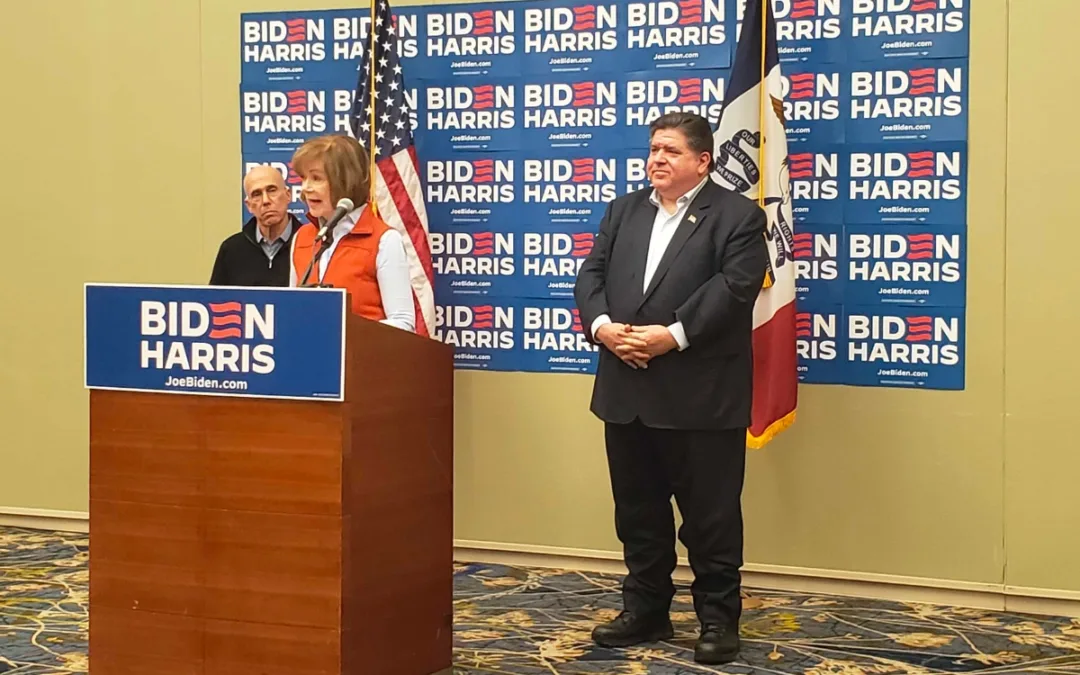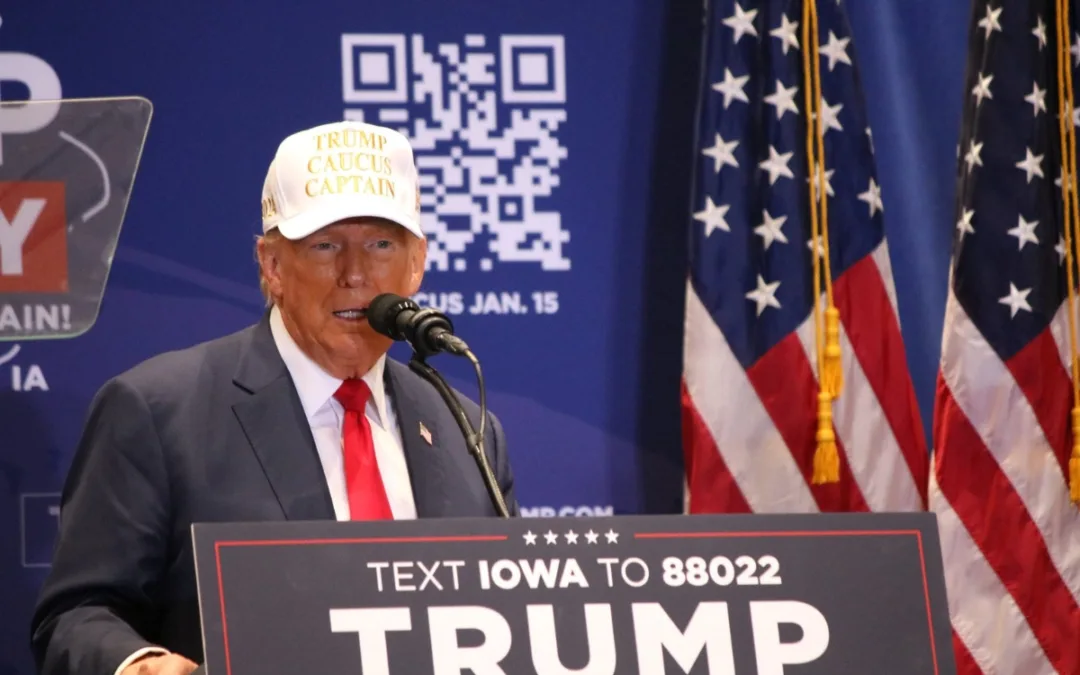
Photo: A Buttigieg volunteer meeting in Burlington
Kelly Shamp and her 19-year-old daughter have attended caucuses together for more than a decade. This year, for the first time, they are volunteering their time to help elect Pete Buttigieg, the former mayor of South Bend, Indiana.
“I think I’ve been dragging her along since she was born, pretty much,” said Shamp, a restaurant manager.
Though she has long been a loyal caucus-goer, Shamp will serve as a precinct captain for the first time next month. As a Buttigieg volunteer, on caucus night Shamp will help herd supporters into a preference group inside the auditorium at James Madison Education Center on the south side of Burlington, a blue-collar, mostly-Democratic town on the Mississippi River in Southeast Iowa.
In other corners that night will be volunteers for competing presidential campaigns that have worked for months to turn out enough supporters in their precinct to hit viability and win county-level delegates.
Starting Line spoke with three of the presidential candidates’ precinct captains in Burlington Precinct 9 to get a sense of what it’s like to hold an important organizing position on caucus night.
[inline-ad id=”0″]
Precinct 9, tied for second-largest in Des Moines County, has seven delegates to elect this year to its county convention. County data show there is about 2,000 voting age residents in the precinct, though caucus night turnout will likely be a small fraction of that.
In 2016, Precinct 9 had six delegates to elect — three were awarded to Sen. Bernie Sanders and three went to Hillary Clinton. In all, Sanders won Des Moines County’s 16 precincts with 53.3% support compared to Clinton’s 46.7%.
It’s a strong Democratic area of town in most general elections. Fred Hubbell, the Democratic nominee for governor, outpaced Republican Gov. Kim Reynolds in Precinct 9 in 2018 by 748 to 483 votes.
Success in Precinct 9 will be won on the margins. For every candidate in this crowded field, first hitting the 15% viability number is the first challenge. Then the task is building up your numbers in your corner of the room after non-viable groups realign to get the most delegates possible.
One scenario could play out like this: Five candidates are viable in Burlington 9, ending with a possible delegate allocation of 2-2-1-1-1 for various candidates. Or if four candidates hit viability, one final allocation could end up as 3-2-1-1. Basically, “winning” in a precinct like this could be as simple as getting one more county-level delegate than the other candidates.
[inline-ad id=”1″]
Mackahlan Shamp has teamed up with her mother to bring out as many Buttigieg supporters in Precinct 9 as possible on Feb. 3.
“I like that he’s younger, and I just feel like if we had him in office we wouldn’t get the same results as we’ve been getting in the past,” said Shamp, 19. “And like mom said, we are so divided, even among the Democratic Party, and I feel like he doesn’t want to divide us, he just wants to bring us together again.”
Situated on the busiest street of Burlington’s downtown, the Buttigieg team capitalized on a holiday event last year where locals walked along the storefronts to look at window displays and receive small treats from business owners.
“During Living Windows, there was so many people getting stickers and pens and just walking in and asking for information, so I think that was one of the most successful events that we had here,” said Mackahlan Shamp.
A pansexual woman, Mackahlan Shamp said Buttigieg’s presence as a gay man in the race was “comforting.”
“There’s been a lot of attacks towards the LGBTQ community recently, and I think also just having him in there would really bring a lot of comfort to people like me,” she said.
[inline-ad id=”2″]
Ryan Rogers, the 37-year-old precinct captain for Sanders, described Precinct 9 as “a pretty big mix” of age ranges and occupations in the Southeast Iowa community.
“It’s about as diverse as Burlington gets as far as age ranges and things like that,” said Rogers, noting the significant blocs of working class residents and retirees.

Rogers’ support for the Vermont senator extends back to the Occupy Wall Street protests of 2013-14 when his “left-leaning perspective” on politics was formed.
“I was like, this guy is amazing, I love him; he’s saying everything that I want to hear, and I was elated to find out that he was going to run for president, or even exploring a run for president, back in 2015,” Rogers said. “So, yeah, I’ve never looked for anybody else.”
[inline-ad id=”3″]
2020 is the second election cycle Rogers has volunteered as a precinct captain for Sanders. This year, he’s honing the one-minute pitch a supporter from each campaign has the opportunity to deliver before caucus-goers split into their separate corners.
“The big thing that we’re trying to do is have an energized and fun group to try to get as many people on our side as possible so we can win the thing,” Rogers said. “We’re out there trying to to be as effective as we can to get people on our side, I guess would be the way to put that. And that was something that I personally did not do well — that wasn’t on the campaign, that was on me — the last time, and I’m going to make sure that I do better this time.”
The Des Moines County Democrats recently held a caucus training at Burlington’s IBEW Hall to refresh people on the process and go over new rules.
Sandy Dockendorff, a former chair of the Des Moines County Democrats, led the group through caucus math and the tricky scenarios that could arise — “flip a coin is literally in state law,” she said. Largely, however, Dockendorff wanted to stress housekeeping items that often are overlooked amidst caucus night chaos, like sign-in sheets, registration forms, clearly marked signs and enough space for people to comfortably check in.
[inline-ad id=”4″]
Des Moines County also is encouraging its party faithful to use name tags as a numbering system to keep track of eligible caucus-goers as they walk into their precincts. That way, Dockendorff explained, organizers will easily be able to calculate how many supporters each group needs in order to hit the 15% viability threshold.
Once the room is called to order and supporters from the various campaigns have a chance to pitch their candidate, the first alignment begins.
“It’s going to be bedlam for 15 minutes,” Dockendorff said.
At a Buttigieg caucus training in downtown Burlington, Travis Brock led about two dozen supporters through the intricacies of a Democratic caucus, complete with “homework” sheets the volunteers could use to brush up on the rules and practice caucus math.
“Math is my comfort zone,” said Brock, Buttigieg’s national caucus director, before diving into the jingle he uses to help volunteers remember the formula for apportioning delegates.
Known for encouraging positivity and a friendly approach to organizing, Brock stressed to the volunteers the importance of staying calm on caucus night and kindly persuading people to join their corner.
“We’re going to be so damn joyful that everyone will want to join us,” he said.
[inline-ad id=”5″]
Catherine Benitz also is a first-time precinct captain and relatively new to the Iowa caucuses. The 2016 cycle was the first time she participated.
“I’ve been more involved with the campaigning and the candidates this year then I ever was before I supported Elizabeth Warren,” said Benitz, taking up the mantle for Warren in Precinct 9.
“This Fight Is Our Fight,” Warren’s 2017 autobiography, “really sold” Benitz on the Massachusetts senator.
[signup_form]
“I read that last summer,” she said, “but I’ve also been reading all the other books by all the other candidates as well, and hers really stands out as having a bigger picture, a broader understanding of issues over time. She weaves her own story in with common people’s stories with why we’re in some of the messes in this country and where the fix is.”
While Benitz will take the lead with Warren supporters in Precinct 9, the campaign also has designated other volunteers for roles like “sign-in captain,” tasked with getting the count of Warren supporters in the room.
Her Burlington home has served as a “little train station” of sorts, with young field organizers cycling in and out. Currently she has two Warren organizers living with her — one of whom has been there since April — but she also has housed staff from the campaigns of Sens. Kirsten Gillibrand, Kamala Harris and Michael Bennet.
In 2016, Benitz walked into her precinct as a supporter of Martin O’Malley, but realigned with Clinton supporters because the O’Malley preference group did not have the 15% support necessary to be a viable group.
“There’s still a lot of undecideds and a lot of people split with other candidates,” Benitz said, of her neighboring caucus-goers.
By Elizabeth Meyer
Posted 1/14/2020
Politics

6 terrifying things that could happen if the Comstock Act is used to target abortion
Does 1873 sound like a really, really long time ago? Well, that’s because it is—but if Republicans and far-right anti-abortion activists have their...

Iowa parents explain how ‘fetal personhood’ would harm IVF
Lyndi Buckingham-Schutt and her husband Andy Schutt, both Des Moines residents, always knew they wanted to have children. When Lyndi was 30, they...
Local News

No more Kum & Go? New owner Maverik of Utah retiring famous brand
Will Kum & Go have come and gone by next year? One new report claims that's the plan by the store's new owners. The Iowa-based convenience store...

Here’s a recap of the biggest headlines Iowa celebs made In 2023
For these famous Iowans, 2023 was a year of controversy, career highlights, and full-circle moments. Here’s how 2023 went for the following Iowans:...




